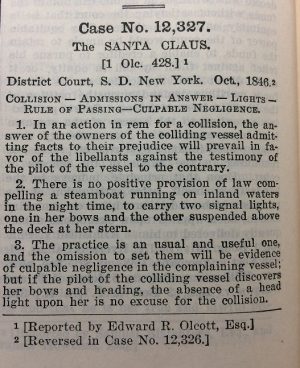Under an ancient law still on the books, known as the Coming Armed to Parliament Act 1313, it is illegal to wear armor in the Houses of Parliament. Unsurprisingly, there have been no recent prosecutions for violations of this statute on record.
While Vermont abolished the death penalty in 1965, it still has one capital crime remaining on the books: treason. Vermont law states that “[a] person owing allegiance to this state, who levies war or conspires to levy war against the same, or adheres to the enemies thereof, giving them aid and comfort, within the state or elsewhere, shall be guilty of treason against this state and shall suffer the punishment of death.” Twenty-eight other states also treat treason as a state crime. Treason is the only crime specifically defined in the Constitution, appearing in Article III s.3.
Just in time for Valentine’s Day, this legal fact: the only two States where divorce remains illegal are Vatican City, and the Philippines (where legal separation without the ability to remarry is available, but divorce is available only to the Muslim minority). Both States allow for annulments, but these are difficult to obtain.
While Delaware has long been the favored state for the filing of corporate lawsuits, in 2017 it fell to 11th place. The Top 5 now: South Dakota; Vermont; Idaho; Minnesota; and New Hampshire. The ranking was compiled by the U.S. Chamber of Commerce’s Institute for Legal Reform, which looked at the “fairness and reasonableness of state court liability systems”
Rhode Island was the only state that refused to send delegates to the Constitutional Convention in 1787, a fact that goaded the usually-reserved George Washington into referring to the RI representatives’ actions as “impolitic, unjust, and….scandalous”. It was also the last state to ratify the Constitution, on May 29, 1790.
96% of pet-custody cases in divorces involves disputes over custody of dogs. Only 1% involve cats (not surprising to dog lovers!). The remaining 3% involve other domesticated animals, including birds, lizards, snakes and even 130-pound tortoises.
Courtesy of the History Office of the Federal Judicial Center: “The first mention of Santa Claus in a reported federal case came in a maritime case involving a ship of that name in 1846. The Santa Claus, 21 F. Cas. 406 (S.D.N.Y. 1846)”. Fans of maritime law and esoteric legal facts rejoice!
Under the common law, a defendant who refused to enter a plea was considered to be contesting the court’s jurisdiction and was subjected to ‘peine fort et dure’ — pressing under heavy weights — until the defendant either consented to plead or died by suffocation. In the U.S., the only recorded use was against Giley Corey in 1692, who was pressed to death during the Salem Witch Trials. The procedure was abolished in the U.K. in 1772, when standing mute was made equivalent to a guilty plea. Refusing to plead was changed to a ‘not guilty’ plea in the U.K. in 1827, as is the law now in all common law countries.
Despite what is popularly believed, the U.S. does not offer robust protection against child marriage. Twenty-five states do not have a legal minimum age for marriage, while 8 others set the age at under 16. New Hampshire, for example, sets the age at 13 for girls and 14 for boys. In these states, judges must grant approval to marry, but a report from the Tahirih Justice Center shows that this often provides marginal protection at best — most states do not require the child be given counsel, nor do most require that the ruling judge serve on a family, juvenile or domestic relations court.
The 25th Amendment was ratified in 1965, prompted by ambiguity of Article II, s.1, clause 6 regarding Presidential incapacity and succession. This was an issue following the assassination of President Kennedy, as the office of Vice President remained vacant until a new term began in January 1965. This Amendment provides that the Vice President shall assume office in the event of the removal, death or disability of the President; and that the President shall fill a vacancy in the office of Vice President through nomination of a candidate who is then approved by a simple majority of both houses. In the event of presidential disability, he may be removed upon assent of the Vice President and a majority of the cabinet once the House and Senate speakers are notified; if the President contests the disability, removal requires assent by two-thirds of both houses of Congress.
Among the many legal issues raised by ride-share services such as Uber and Lyft is personal violence: online tracker Who’s Driving You (which, it should be disclosed, is run by the Taxicab, Limousine & Paratransit Association), recorded more than 330 alleged sexual assaults and incidents of harassment, nearly 80 assaults, and 40 deaths caused by ride-share drivers worldwide since 2014. Additionally, there have been numerous incidents of violence between passengers who have carpooled using UberPOOL and Lyft Line ride-sharing services.
On November 6, 1872, prominent social activist Susan B. Anthony cast a vote for president. She was later found guilty of illegal voting and fined $100. At the time of her conviction in federal court, she stated “I shall never pay a penny of your unjust penalty”, and the presiding judge chose not to have her held in custody likely so as to prevent her from appealing to the Supreme Court. She and Elizabeth Cady Stanton drafted a proposed 16th Amendment granting women the right to vote, often known as the “Anthony Amendment“, in 1878. It was not submitted to the states for ratification until 1919, and was ultimately ratified as the 19th Amendment in 1920, fourteen years after her death.

